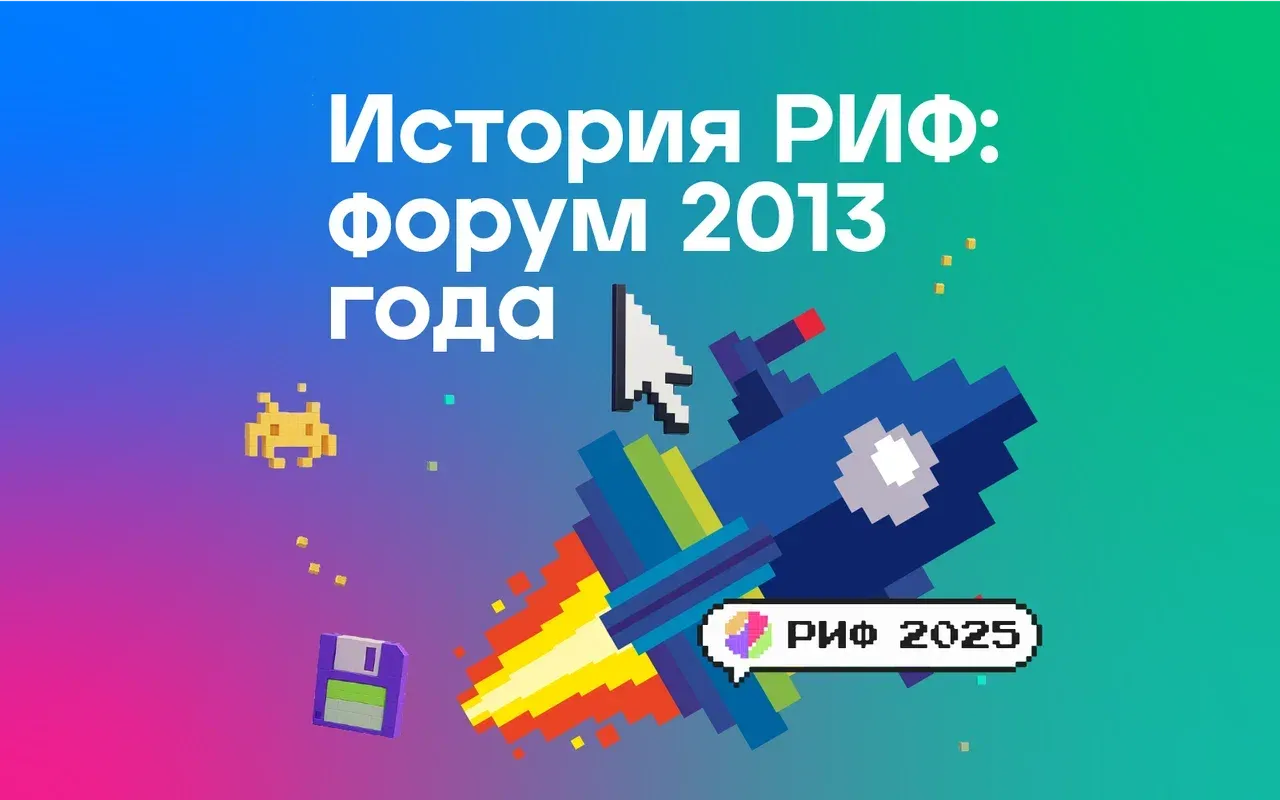RIF + KIB 2013: The 4G Era
Russia’s main spring IT forum drew startups, search specialists, business angels, and policymakers — all focused on how broadband and mobile connectivity could reshape an economy and society on the move.

Industry Speaks, Government Listens
In April 2013, the 17th Russian Internet Forum (RIF+KIB) relocated to a new venue, the 'Polyana' complex outside Moscow, to accommodate unprecedented demand. Attendance came at a price — 7,000 rubles (≈ $110) — but that hardly slowed the flood of entrepreneurs, investors, and engineers.
Prime Minister Dmitry Medvedev addressed participants via Facebook: 'The pace of Runet’s development reflects not only the potential of the entire sector, but also new priorities for our society, which seeks immediate access to information and modern online services. Thanks to the Internet and social networks, citizen participation in national decision-making is expanding.' He added that the Internet was making government 'more open and transparent.'
The forum featured over 80 sessions on trends from e-commerce and online advertising to SEO, RTB, geotargeting, and video traffic. Each stream combined overview talks with deep-dive discussions, structured as either lectures or talk shows.
The parallel UpStart Conf block focused on startups: building, scaling, and funding small tech businesses. It attracted venture capitalists, angel investors, and seasoned founders who had already turned ideas into operating companies.
Experts pointed to a systemic need: raising digital literacy among both users and entrepreneurs. No single market player could replace the state in that role. Government was also asked to mediate disputes and provide 'incubation conditions' for startups, lowering entry barriers for innovators.
Minister of Communications Nikolai Nikiforov set ambitious targets: annual growth of 20 million 4G users, over 5 million families each year gaining fixed Internet at 100 Mbps, and expansion of Russia’s fiber-optic backbone. Funding for bridging the regional digital divide would come from the Universal Service Fund — about 12 billion rubles (≈ $190 million) previously earmarked for payphones — and from spectrum fees, totaling 16 billion rubles (≈ $255 million) annually from operators.
Applause followed his announcement of a Russian Post restructuring plan: to transform the postal service into an efficient logistics network. He also urged entrepreneurs to focus on health tech, distance learning, social media, and mobile — areas more likely to attract investment.
Beyond Business: A Festival Atmosphere
Alongside the official program, the crowd-sourced 'Program 2.0' offered 10 user-generated sessions, while 'Program+' and the Internet & Business 2013 exhibition added extra layers of content.
The visual theme was flight: Polyana became a playful 'Runet International Airport.' Golf carts, rickshaws, Segways, and e-scooters ferried participants around the vast grounds. For many IT girls, arriving in high heels, mobility aids weren’t optional. Even the parking lot stretched 3 kilometers.
Session formats were compact — 15-minute talks with 5 minutes for Q&A. Some panels overflowed with questions, and even hesitant attendees took the mic. Others used the chance to troll speakers with pointed remarks. The result was lively, unpredictable, and participatory.
The Facts on the Ground
Runet’s 2013 profile was clear:
- 65 million users.
- 75% of adults and 58% of children learned to use the Internet independently, underscoring the need for state-led digital literacy initiatives over bans or filters.
- Average time online: 100 minutes per day.
- Russia ranked first in the world for social network engagement. Email, search, and dating also remained popular.
- Daily mobile users: 18 million, up 33% year-over-year.
- Smartphones were the dominant device, owned by 80% of Russians.
Legislative focus loomed large. Amid a surge of regulatory initiatives — 49% viewed by experts as negative, 28% neutral, 23% positive — the proposed 'Internet Law' was presented as a chance for systemic policy rather than piecemeal control.
For the future, organizers introduced the draft strategy 'Runet 2013–2018.' Participants were invited to shape its ideas. By the forum’s close, a coordinated version was released, aligning government and industry on a shared vision for the next five years.
Why It Matters
RIF+KIB 2013 captured a turning point: the Internet was no longer a novelty but infrastructure. With 4G, smartphones, and fiber optics, Russia was laying the groundwork for a more connected society. The numbers told a story of rapid adoption, but the real significance lay in what connectivity enabled: citizen participation, smarter startups, and a national market ready to innovate on its own terms.
Runet had become not just Europe’s largest online community but a laboratory where infrastructure, policy, and entrepreneurship converged.

